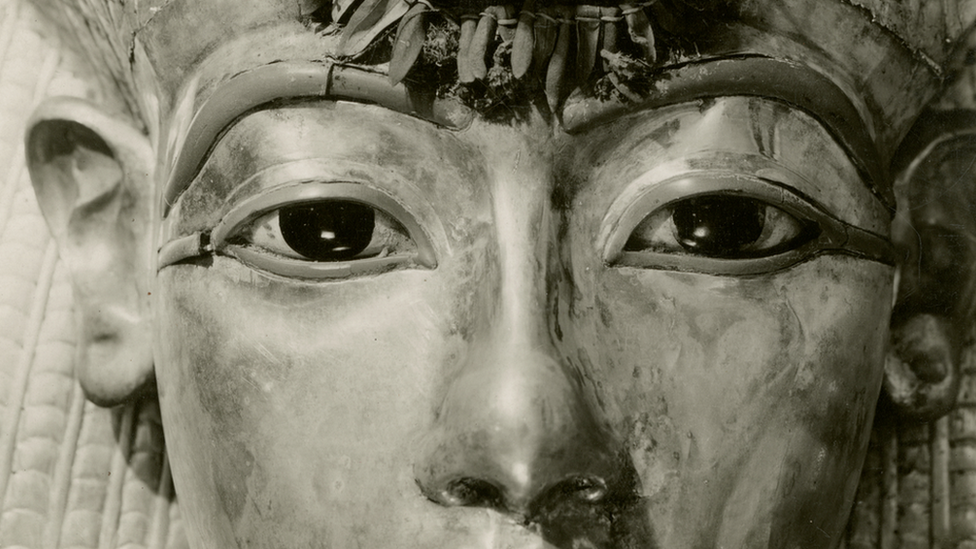Harrogate jeweller celebrates Tutankhamun family connection
- Published
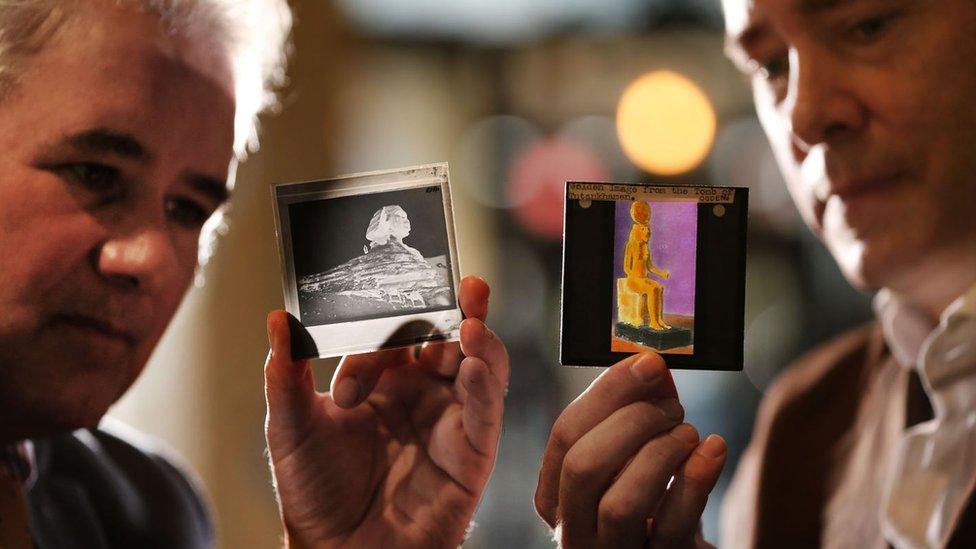
Robert and Ben Ogden, descendants of James R Ogden, said they had recently been cataloguing their archive
The descendants of a man who weighed Tutankhamun's coffin when it was discovered in 1922 are displaying artefacts he brought back from Egypt.
Harrogate jeweller, James R Ogden, was one of the first people in over 3,000 years to enter the tomb, as he valued the gold and jewellery found inside.
He travelled to the Valley of the Kings and returned with a vast collection of memorabilia.
His souvenirs make up the Egyptomania exhibition at the family's shop.
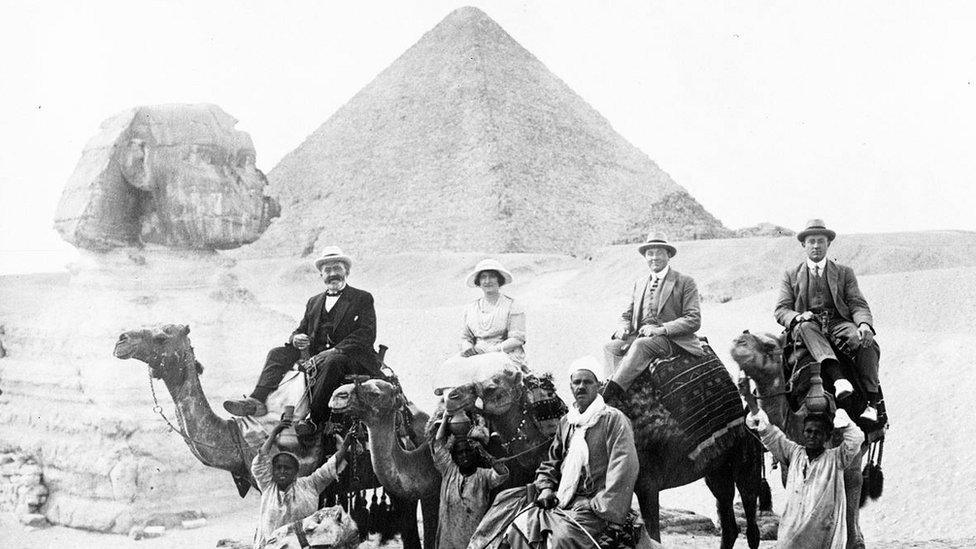
James R Ogden (above left) became a collaborator and fundraiser for leading archaeologists of the day
Robert and Ben Ogden, the great-great-grandsons of James R Ogden, said the exhibition, at Ogden of Harrogate would celebrate 130 years of the family jewellers, during the 100th anniversary of the tomb's discovery.
They said Mr Ogden had founded his business in 1893, which required him to travel widely to obtain beautiful jewels.
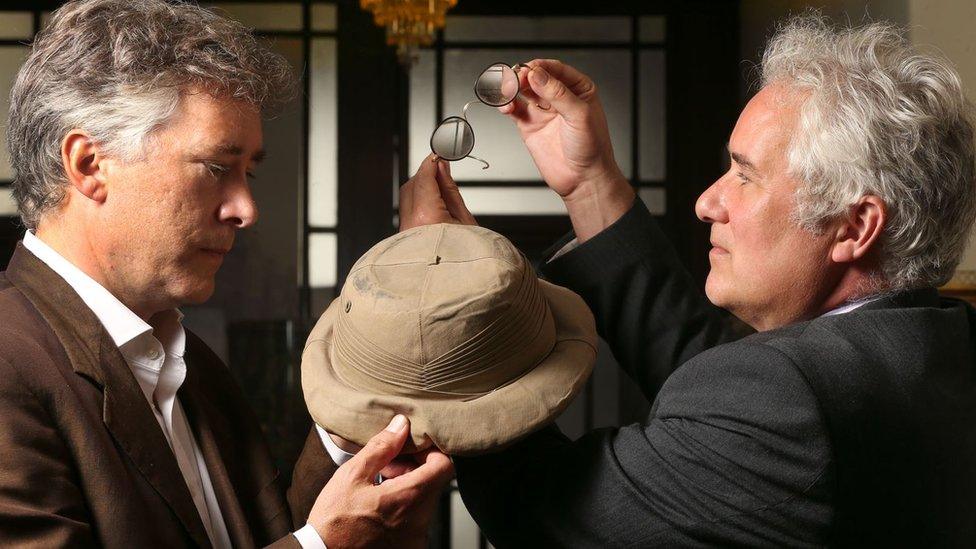
Egyptomania would be hosted at Ogden of Harrogate to celebrate 130 years of the family jewellers, organisers said
Robert Ogden said: "We have a vast collection of JR Ogden's memorabilia, including a remarkable collection of 10,000 lantern slides of his travels to Tutankhamun's tomb, and artefacts from his expeditions to Ur, Babylon, Palestine, Syria, and Assyria.
"There are also hundreds of letters that are fascinating glimpses of the key characters of that time, and their explorations."
James R Ogden made replicas of many of the artefacts found at digs he visited and donated them to the British Museum. He also gave lectures showcasing his slides to audiences across the UK.
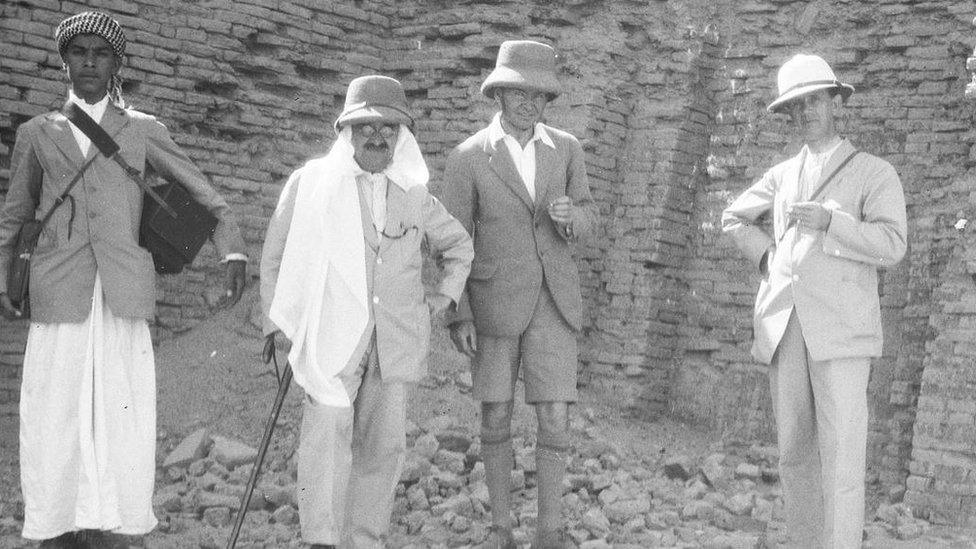
James R Ogden (above, second from left) used his knowledge of the working of gold to help interpret the material found at digs
Organisers said the exhibition would provide "an insight into the social and political context in which archaeology was practiced at that time".
Robert Ogden said: "The Ogden archive will be made available to historians for further study.
"Who can't be captivated by the adventures of these pioneers of archaeology and the mysteries they discovered?"

Follow BBC Yorkshire on Facebook, external, Twitter, external and Instagram, external. Send your story ideas to yorkslincs.news@bbc.co.uk, external.
Related topics
- Published11 May 2022
